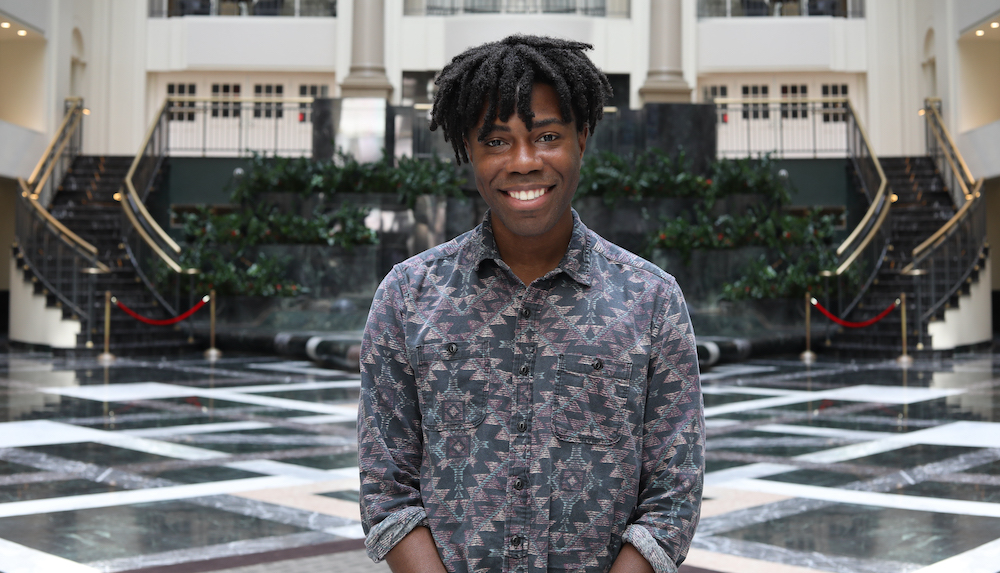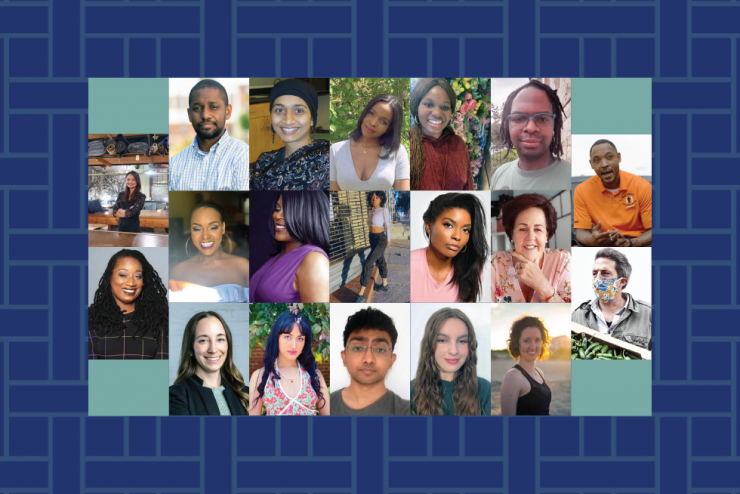The Johns Hopkins Social Innovation Lab’s (SIL) 2021-22 cohort includes ten companies that are taking an entrepreneurial approach to addressing issues including access to feminine hygiene products, pay equity and gun violence in Baltimore.
In recent years, the six-month program has brought together 103 ventures founded by social entrepreneurs from within the Johns Hopkins community and Baltimore City as a whole. They learn about customer discovery, storytelling, financial literacy and good governance through hands-on workshops and trainings. Each venture receives $1,000 along with the opportunity to take advantage of a reimbursable grant of up to $5,000 through a Johns Hopkins I-Corps Site Grant.
Leaders have continued to upgrade the curricula over the time. This year, it will include more one-on-ones and simulations, meaning further involvement from a network of advisors, mentors and alumni entrepreneurs from the community.
“Our goal is for these entrepreneurs to leave feeling as if they have achieved their goals or at least have a road map for how they are possible,” said Madison Marks, SIL’s director, in a statement. “Impact starts with a plan and progress, and we are helping this cohort on the road to changing lives, neighborhoods and systems.”
The program will culminate with a showcase event in April 2022, where one of the companies will receive $25,000. The 2021 winner was Dyslexia Advocation, Inc., founded by Winifred Winston. The 2020 winner was equitable development company Parity, led by Bree Jones. She’s since gone on to win $225,000 through the national Fund for New Leadership, and is revitalizing West Baltimore’s Harlem Park through the redevelopment of vacants for homeownership.
SIL received 44 applications this year, with more than half of this year’s cohort having no prior affiliation with Johns Hopkins. Per the program, 70% of the teams are led by founders of color, and 80% of the teams are co-led by female entrepreneurs.
Here’s a look at the teams, with description info provided by SIL:
Ballet After Dark provides free, trauma-informed, holistic resources to survivors of sexual trauma and various levels of violence in Baltimore City, amplifying and prioritizing the healing of Black youth and women. The team includes Tyde-Courtney Edwards, Candice Christmas, Simone Gadlin and Morgan Harrell.
BOOB’R, founded by Kimberly Haven, works to challenge and erase the stigma for individuals who want to breastfeed while incarcerated, advocate for change within the prison system and establish lactation support for mothers behind bars.
Carlton St. Equine Center leads gun violence interruption efforts and administers post-violence trauma care through horsemanship led by the arabbers, Baltimore’s indigenous horse and wagon produce vendors. The cofounders are Levar Mullen and Matthew Holden Warren.
Enigma Science and Technology is developing technology that can be used to reduce the number of arrest-related deaths as part of its overall mission to solve current and future challenges impacting society. It is led by Malik and Anju Little.
Fem Equity is a membership-based platform that strives to make pay equity a reality for women of color by providing the tools and support and inspiring the confidence they need to make empowered decisions for career success and financial security. It is led by Adeola Ajani and Chidera Egbuche.
Glass Recovery and Sustainable Systems (GRASS) Baltimore LLC, led by Dante Swinton, is a zero-waste cooperative that maximizes the value of glass by turning it into artwork and reselling bottles to local breweries.
The Puzzling Disorder Project, led by Nicole Harris-Stokes, is a resource hub prioritizing advocacy for the developmental needs of children with autism by connecting them to a network of peer advocates, licensed professionals, art therapy and alternative medicine. The hub offers de-escalation workshops for emergency responders to decrease unnecessary interactions with law enforcement.
SEW BROMO, led by Stacy Stube, is a global fashion trade school and fashion incubator for educators, entrepreneurs and enthusiasts.
TamPal is a smart tampon and pad dispenser that aims to make tampons and pads as accessible as toilet paper in bathrooms. The team is led by Erica Duffy, Reem Larabi, Avinash Narisetty and Stefanie Zins.
Yoga in Classrooms and Schools Consulting works with schools to create and implement yoga and mindfulness programming. It is led by Emily Fleming.
Donte Kirby is a 2020-2022 corps member for Report for America, an initiative of The Groundtruth Project that pairs young journalists with local newsrooms. This position is supported by the Robert W. Deutsch Foundation.Before you go...
Please consider supporting Technical.ly to keep our independent journalism strong. Unlike most business-focused media outlets, we don’t have a paywall. Instead, we count on your personal and organizational support.
Join our growing Slack community
Join 5,000 tech professionals and entrepreneurs in our community Slack today!

The person charged in the UnitedHealthcare CEO shooting had a ton of tech connections

From rejection to innovation: How I built a tool to beat AI hiring algorithms at their own game

Where are the country’s most vibrant tech and startup communities?


